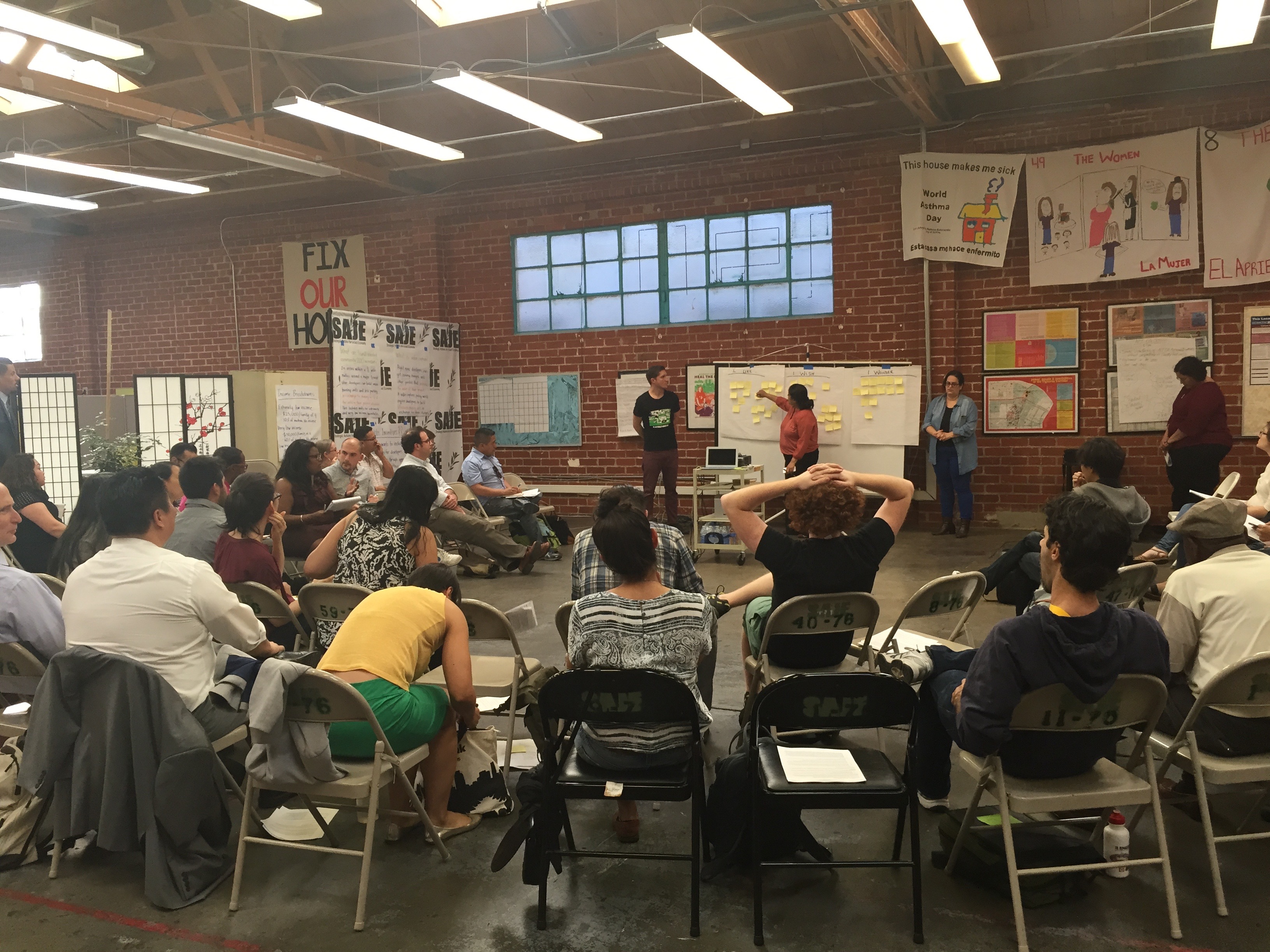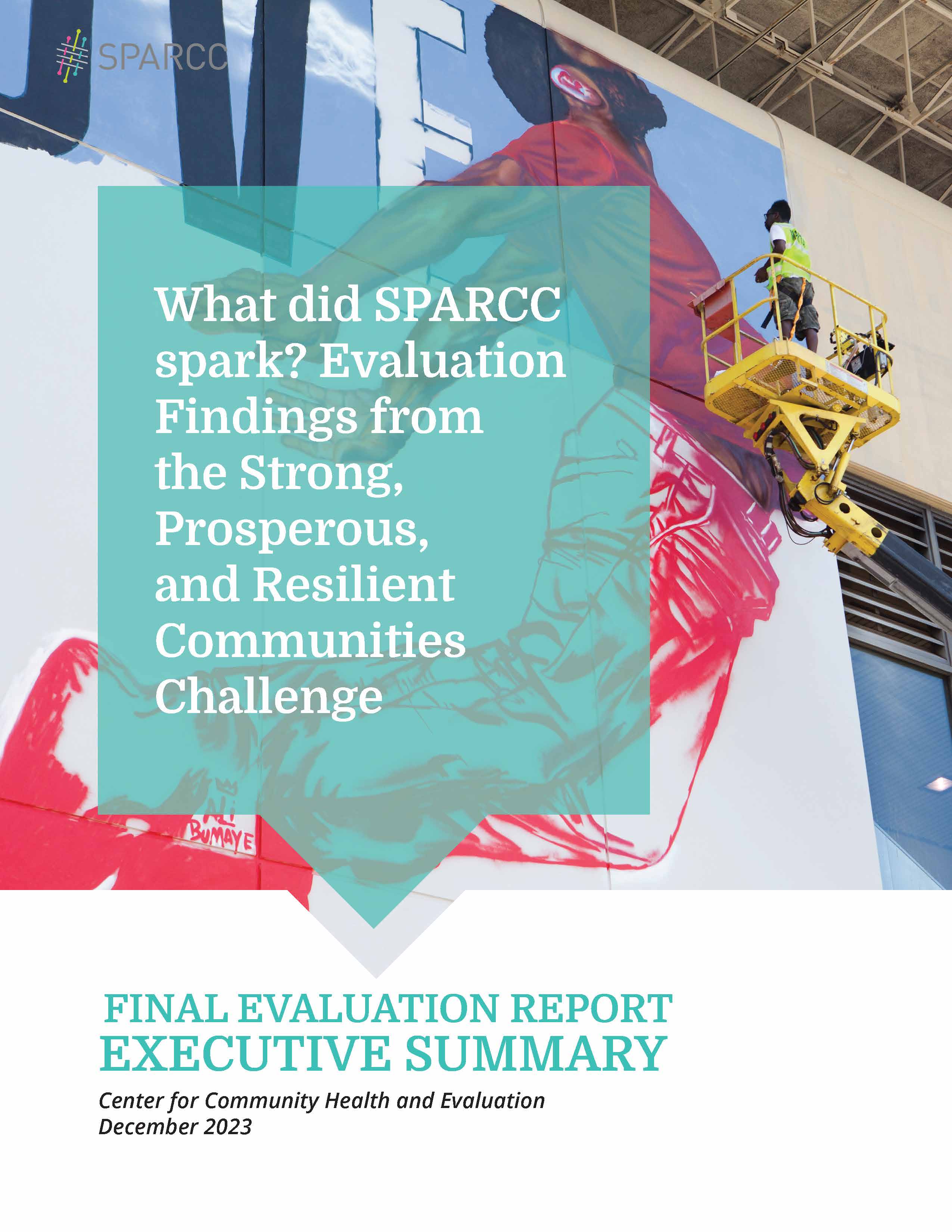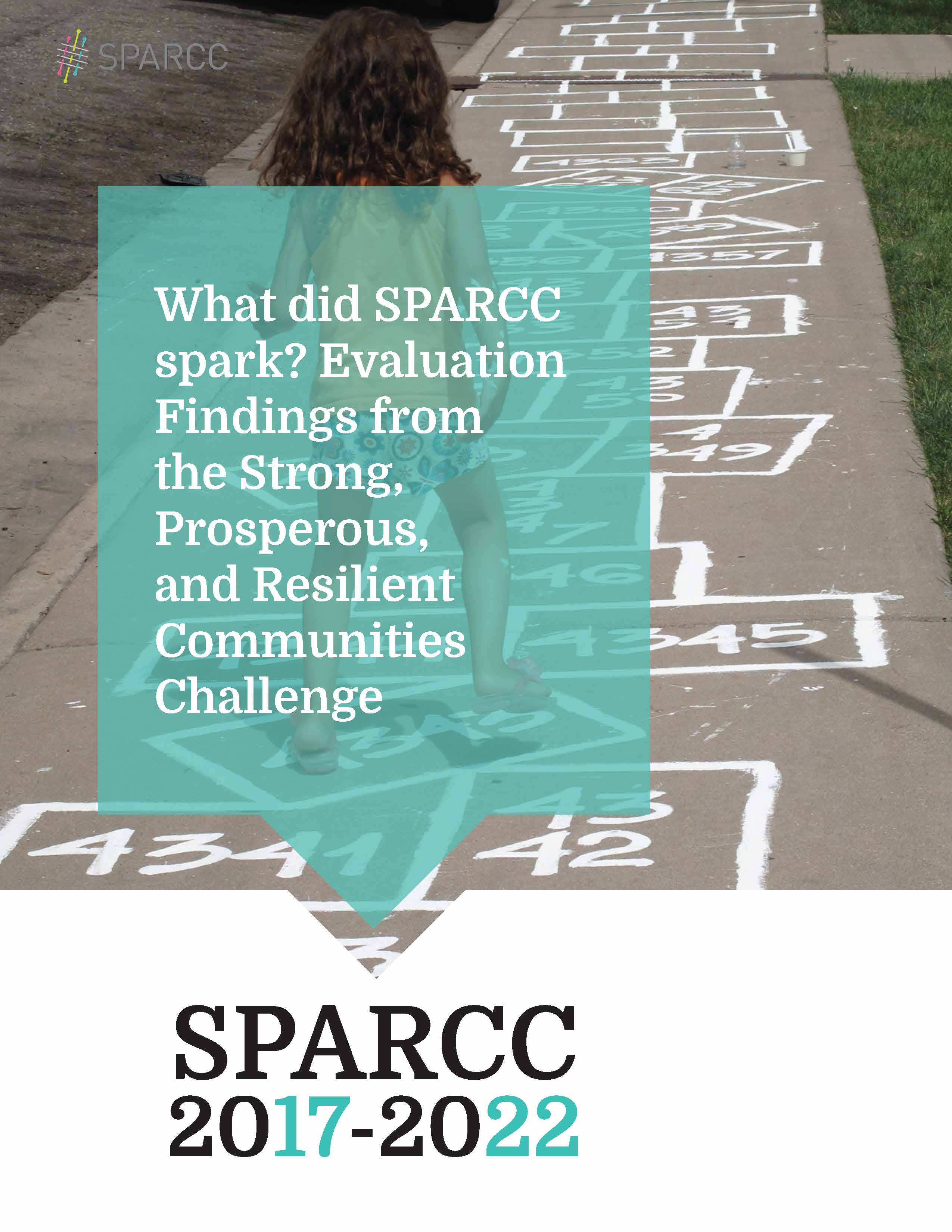CCHE celebrates the SPARCC evaluation

An ambitious, cross-sector initiative, SPARCC engaged in six metropolitan regions throughout the United States from 2017 to 2022. SPARCC’s goal was to change how metropolitan regions grow, invest, and build by promoting equitable policies and investments. Check out this video, Learning from SPARCC: the Path to Resilient Communities, which features the evaluation findings.
Funded by the Robert Wood Johnson Foundation, the SPARCC evaluation assessed SPARCC’s contributions to systems changes at the local and national levels. The evaluation also shared facilitators and barriers to support learning and adaptation. Based on data collected over the six-year initiative, the evaluation identified six key findings:
-
To achieve community development goals related to health and climate resilience, racial equity emerged as the primary value and a necessary first step. Initiatives like SPARCC benefit from active engagement and input from intended beneficiaries like community members of color.
-
With systems change and racial equity initiatives, trusting relationships are an essential ingredient in complex, multi-sector collaboration. SPARCC strengthened and leveraged the relationships of site collaboratives, local community members, and broader networks. in systems change and racial equity initiatives.
-
The SPARCC initiative directed efforts on policy change at the national and local levels related to community development. Most of the work at the national level focused on informing policy development and implementation as well as building the will to make future policy changes. At the local level, sites achieved a broad range of policy successes, including public policies, private or non-governmental policies, and contributions to policy adoption and implementation.
-
SPARCC’s initial vision for capital work clashed with on-the-ground reality, and capital deployment was far less than anticipated. However, more importantly, the initiative revealed barriers to community-led development and prompted adaptation to SPARCC's approach and process. This adaptation advanced learning related to community ownership (an investment model where a community owns property, resources, or services) and contributed to community-driven capital projects in all sites.
The evaluation highlighted that systems change work takes time and requires long-term investment, a willingness to accept risk, and partnership beyond three-year funding cycles.
Check out the final SPARCC evaluation reports:
 |
 |
| Final evaluation report: executive summary | Full final evaluation report |